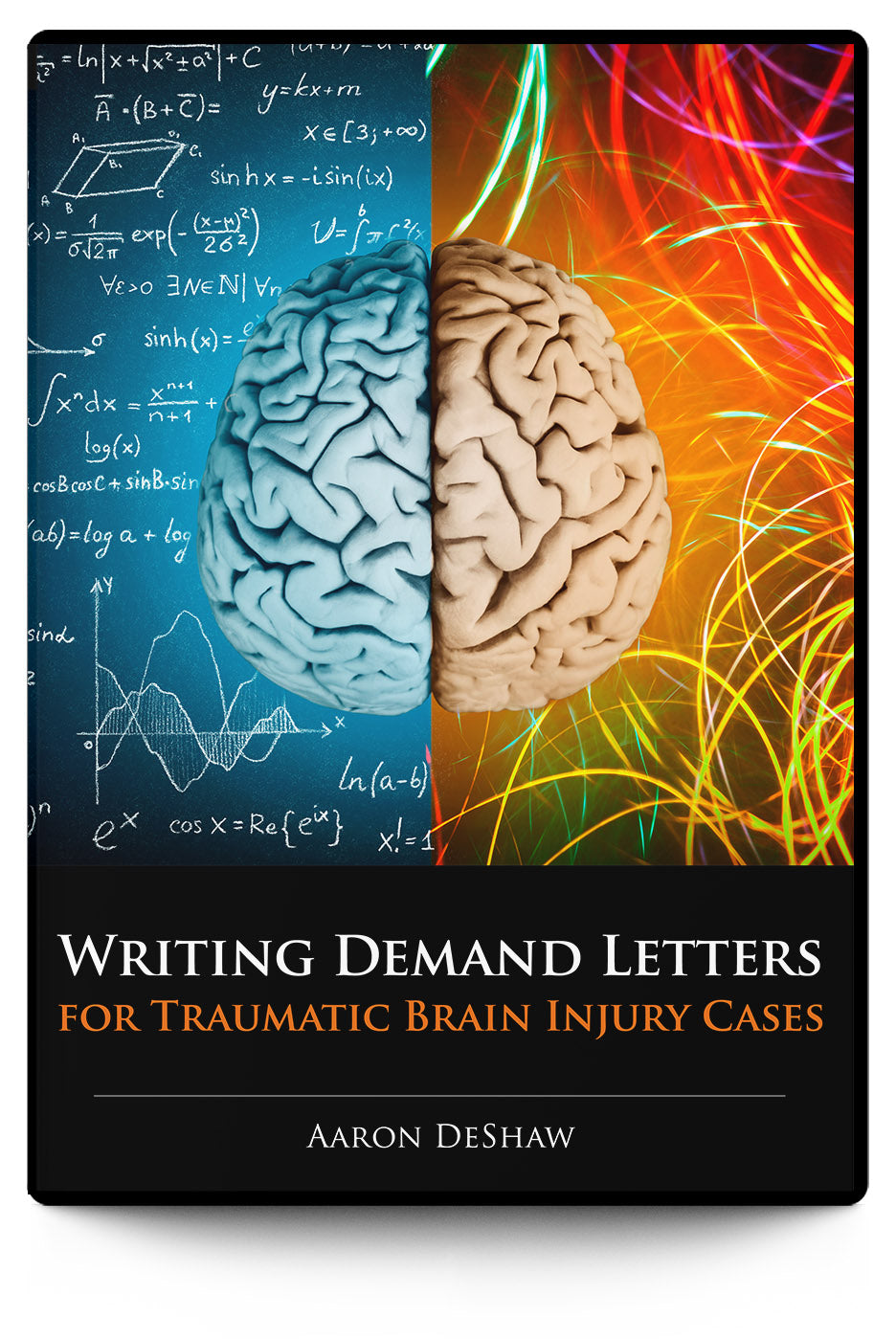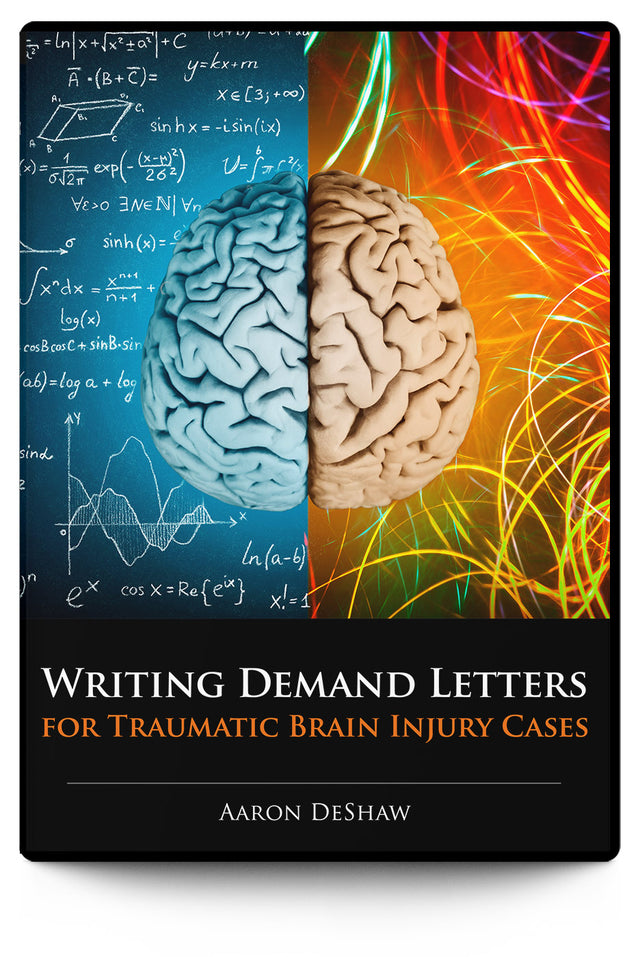Description
Description
In this video, nationally recognized demand letter expert and brain injury lawyer, Aaron DeShaw, provides insights into how to write an effective demand letter in traumatic brain injury (TBI) cases.
Topics include:
- Critical Pre-Demand Procedures for Getting Higher Offers
- Fifteen Aspects of TBIs
- Dealing with the Defense of a “Normal Neurological Exam”
- Preemptively Dealing with Defenses in TBI Cases
- Addressing the Intelligent Client’s Neuropsych Scores
- Determining a Client’s Pre-Injury Cognition After Injury
- Discrediting the Fake Bad Scale
- Dealing with Abnormal MMPI scores on the Defense Neuropsych
- Using Neuroimaging in Your Demand
- Using Medical Graphics in Your Demands
- Addressing Visual System Damage
- Addressing Post TBI Seizures
- Discussing Endocrine System/Pituitary Damage
- Discussing Post TBI Sleep Disturbances
- Addressing Prior Brain Injuries
- And More
Regardless of your experience level with TBI cases, this video will help you improve your pre- and post-litigation traumatic brain injury demand letters.
*Please note: This video includes highlights from an exclusive live event. Due to copyright and other restrictions, this DVD does not include any written materials from the conference. To learn more about our upcoming CLE events, visit our CLE page or give us a call at 1-800-309-6845.
Writing Demand Letters for Traumatic Brain Injuries from Trial Guides on Vimeo.
Author
Author
Details
Details
DVD: 99 minutes; 1st edition (2019); ISBN: 9781941007990
Publisher: Trial Guides, LLC
Table of Contents
Table of Contents
- Introduction
- Critical Pre-Demand Procedures for Getting Higher Offers
- Six Demand Letter Formats
- Fifteen Aspects of Traumatic Brain Injuries
- Dealing with the Defense of a “Normal Neurological Exam”
- Frequently Missed Aspects of Traumatic Brain Injuries
- Writing the Traumatic Brain Injury Demand Letter
- Preemptively Dealing with Defenses in Traumatic Brain Injury Cases
- Discussing the Symptoms
- Addressing the Intelligent Client’s Neuropsych Scores
- Determining a Client’s Pre-Injury Cognition after Injury
- Discrediting the Fake Bad Scale
- Dealing with Abnormal MMPI scores on the Defense Neuropsych
- Addressing Behavioral Changes
- Using Neuroimaging in Your Demand
- Using Medical Graphics in Your Demands
- Addressing Visual System Damage
- Addressing Seizures
- Discussing Endocrine System/Pituitary Damage
- Discussing Post Traumatic Brain Injury Sleep Disturbances
- Addressing Prior Brain Injuries
- Addressing Inner Ear Injuries
- The Most Important Factor in Settlement Offers
- Q&A: Problems with the AMA Guides to Permanent Impairment
- Q&A: Obtaining Your Client’s ISO Report




